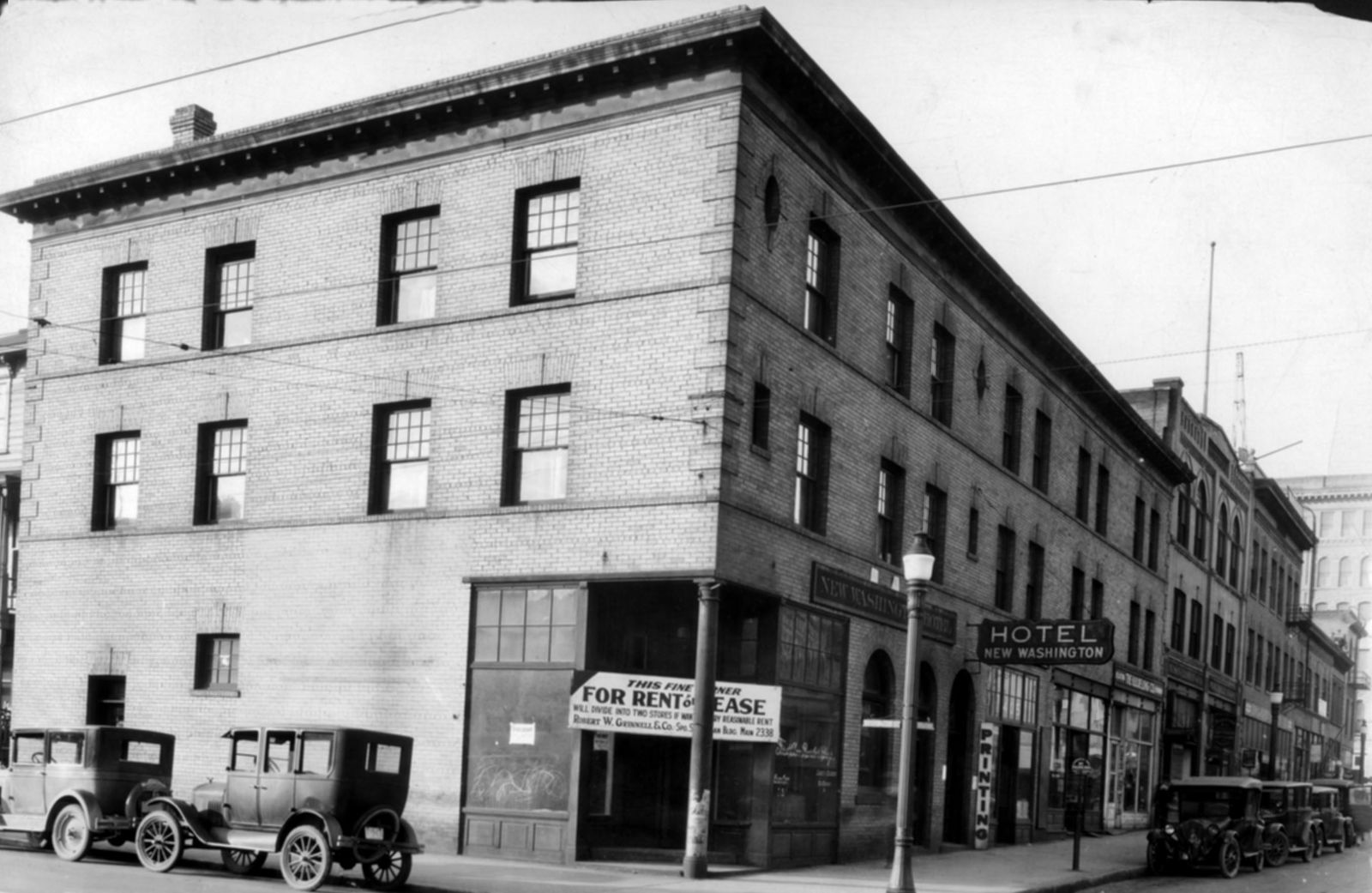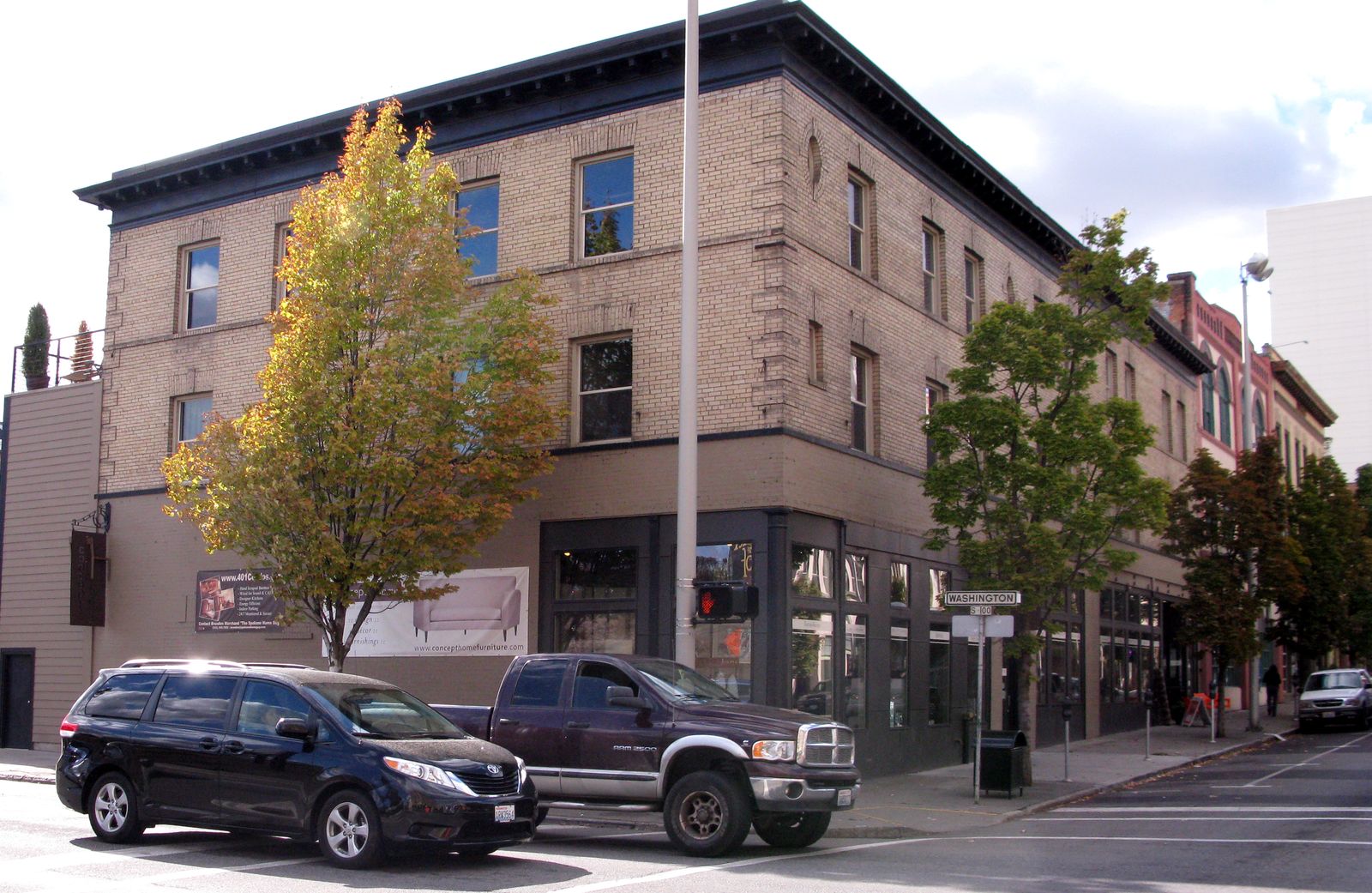
Washington Hotel during Prohibition
Long before the war on drugs, there was Prohibition, starting in 1920. Depending on who’s telling the story, serving liquor in Spokane was either ubiquitous and hardly questioned, or the law was enforced with a vengeance.
Section:Then & Now
Long before the war on drugs, there was Prohibition, starting in 1920. Depending on who’s telling the story, serving liquor in Spokane was either ubiquitous and hardly questioned, or the law was enforced with a vengeance.
Trent Alley, between Washington and Stevens streets, was lined with speakeasy bars. But local newspapers were filled with lists of scofflaws who had sold liquor, and the courts were jammed with defendants who had turned to bootlegging to make a buck.
Case in point: the New Washington Hotel. The ground floor held retail establishments, and the two upper floors of the modest 1901 building at Washington and First offered a cheap place to live for downtown laborers in the 1920s and early 1930s. The Spokane police “dry squad” made several raids and stings there in 1929 and 1930 and arrested several people, some of whom were Greek immigrants, for selling liquor. Usually they would find a few bottles stashed in a closet or suitcase in one of the rooms.
One raid turned up a room where someone had clearly been filling pint liquor bottles with clear moonshine using a funnel. And they were adding burnt sugar to the raw alcohol to color it like whiskey. Those bottles sold for $2 on the street.
Hotel manager Bill Brumas, born Vasilias Athanasios in Greece, was charged with being a “jointist,” running a place that sold alcohol. After his conviction, he appealed, saying the cops only found liquor in private rooms, not in his possession. Cops said the rooms were listed as rented under fictitious names and Brumas had to know what was going on. The conviction was overturned.
In previous raids, the hotel’s owners, Nicolas, James and Joe Arvas, had been convicted of being jointists and sent to jail. In March 1933, a federal judge ordered the New Washington Hotel and several other low-rent hotels to be padlocked for one year for being a public nuisance. In December of that year, the 21st Amendment was ratified, repealing the 18th Amendment and ending Prohibition. In the 1940s, the building became the Como Apartments. The building at 401 W. First Ave. is now divided into condominiums.
– Jesse Tinsley

